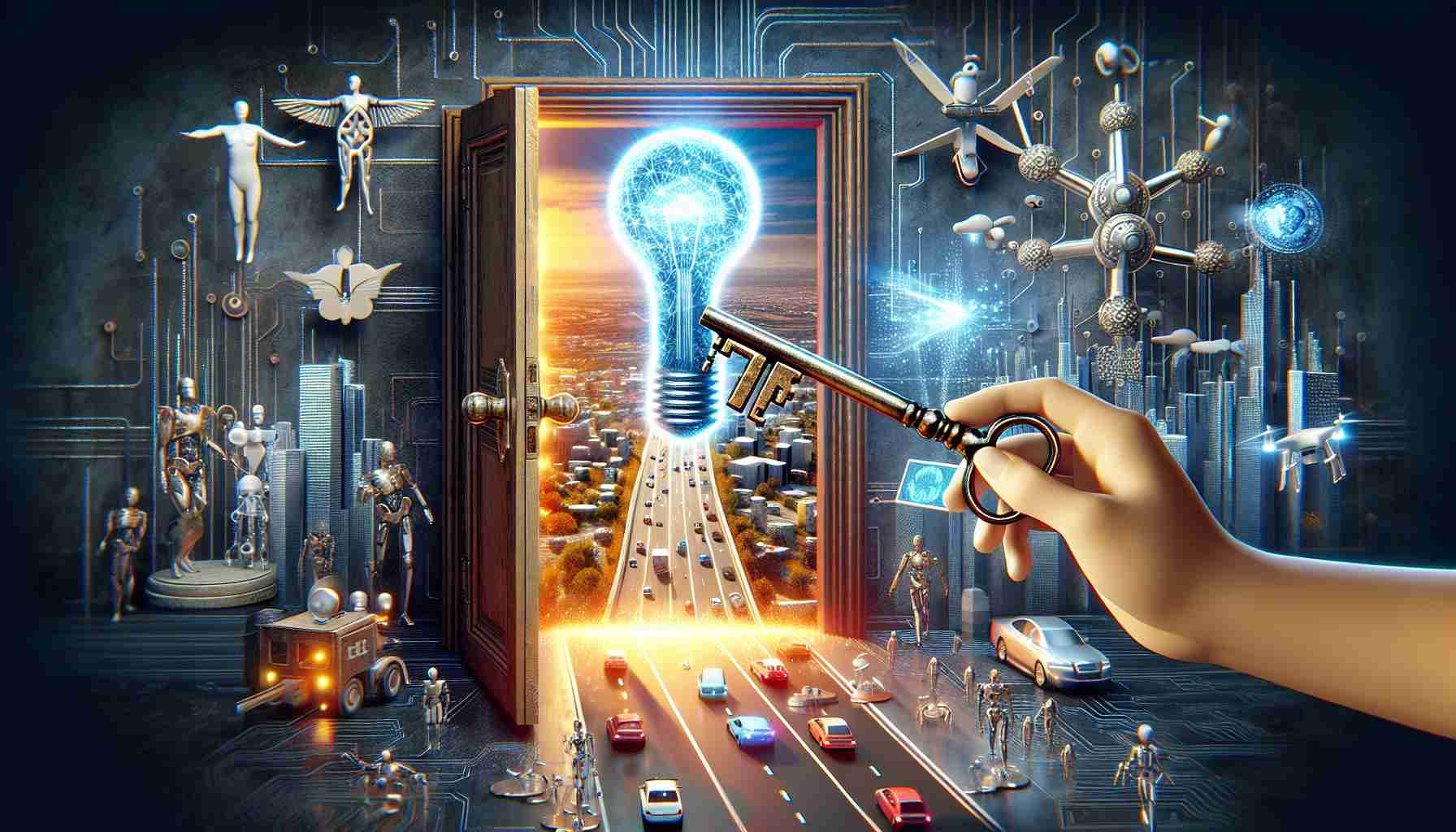- Decentralized AI is a revolutionary concept aimed at redistributing power in artificial intelligence.
- This approach promotes collaboration, enabling individual data privacy and verified interactions.
- Inspired by the interconnectedness of neurons, decentralized platforms can enhance AI efficiency.
- Challenges such as trust issues and potential system failures need to be addressed.
- The evolution of the Internet from simple to complex systems serves as a model for decentralized AI development.
- Experts recommend starting with low-stakes environments to establish trust and confidence in decentralized systems.
- Decentralized AI has the potential to transform areas like recommendation systems and autonomous vehicles.
In a world where traditional AI models are dominated by a few tech giants, a groundbreaking concept is emerging—Decentralized AI. This innovative idea, championed by researchers at the renowned MIT Media Lab, promises to shift the balance of power in artificial intelligence, promoting collaboration over competition.
As the 40th anniversary of the lab unfolds, voices like Ramesh Raskar are resonating with the call for a new approach. Imagine a network where individual data remains private, where companies have real incentives to collaborate, and where every interaction is verified for trustworthiness—this is the crux of decentralized AI.
Decentralized platforms could allow organizations and individuals to work together seamlessly, leveraging the synergy much like the interconnected neurons of the human brain, a concept championed by early AI pioneer Marvin Minsky. The goal? To cultivate a dynamic “mixture of experts” that can propel AI efficiency to new heights, bypassing hurdles faced by centralized systems.
However, as with any innovation, challenges exist. Issues of trust arise when agents operate independently, and the danger of system failures looms. The fascinating analogy of the Internet’s evolution—moving from simple web pages to complex social media and finally to decentralized blockchain—illustrates the pathway forward.
As we step into this promising future, experts suggest starting with low-stakes environments to build confidence. Ultimately, this decentralized vision could redefine everything from recommendation systems to autonomous vehicles, enabling a smarter, more collaborative world. Embrace the change—decentralized AI could be the key to unlocking limitless potential!
Unlocking the Future of AI: Why Decentralized AI is Set to Change Everything!
Decentralized AI: An Overview
In an era where centralized AI models are prevalent, Decentralized AI is emerging as a revolutionary concept championed by researchers, particularly at the MIT Media Lab. This paradigm shift aims to enhance collaboration among various stakeholders in the AI ecosystem while ensuring the privacy of individual data and fostering a trustworthy environment for information sharing.
Key Features of Decentralized AI
1. Privacy Protection: One of the foremost advantages of decentralized AI is the emphasis on data privacy, allowing users to maintain control over their own data.
2. Collaboration Incentives: Companies and individuals can work together more effectively through decentralized networks, creating a cooperative rather than a competitive landscape.
3. Verified Interactions: Each interaction in a decentralized system can be verified for authenticity, thereby enhancing trust among users.
Use Cases of Decentralized AI
– Recommendation Systems: By leveraging decentralized networks, companies can improve user experience and personalization without compromising user data.
– Autonomous Vehicles: A decentralized approach can facilitate real-time data sharing and decision-making among vehicles, enhancing safety and efficiency.
Limitations and Challenges
While the promise of decentralized AI is enticing, there are challenges to overcome:
– Trust Issues: The absence of a central authority can lead to concerns regarding trust in the validity of data and algorithms.
– System Failures: Operating in a decentralized manner may increase the risk of systemic failures if not adequately managed.
Market Trends and Predictions
The trend towards decentralization in AI reflects broader shifts towards privacy-focused and user-centric technologies. Experts predict that as new frameworks are developed, the adoption of decentralized AI will grow, particularly in sensitive sectors like healthcare and finance.
Fundamental Questions
1. How will decentralized AI impact data ownership and privacy?
– Decentralized AI enables users to retain ownership of their data, fostering a more privacy-respecting approach to data utilization where individuals can control who accesses their information.
2. What technological innovations are driving decentralized AI?
– Innovations such as blockchain technology, federated learning, and peer-to-peer networks are pivotal in facilitating decentralized AI by allowing secure and efficient data sharing without central intermediaries.
3. What are the potential security risks associated with decentralized AI?
– While decentralization offers enhanced privacy, it may introduce new security vulnerabilities, such as data integrity risks if nodes in the network are compromised or act maliciously.
Conclusion
Decentralized AI offers a promising avenue for reshaping the future of artificial intelligence. It encourages not only a more collaborative and equitable approach to technology but also shifts the power dynamics from a few tech giants to a broader array of participants. As the development continues, its full potential will reveal how it could dramatically transform various industries.
For more insights on the impact of decentralized technologies, visit MIT.
